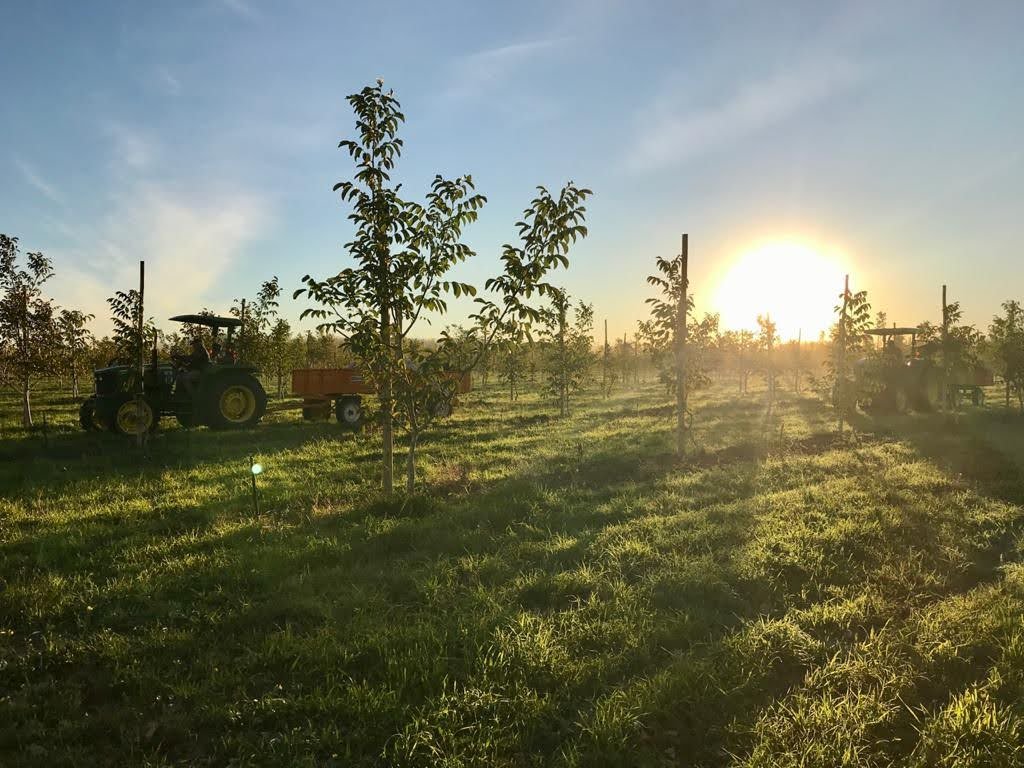Kumbaru Walnuts
Kumbaru is a large scale walnut orchard and land regeneration operation bordering on the Rio Negro in the north of Patagonia.
The farm was established ten years ago with the purchase of approximately 5,500 hectares of deserted scrublands bordering the Rio Negro in the north of Patagonia, Argentina. Over the course of 5 years, 800 hectares of Chandler walnut trees have been planted and carefully managed to ensure optimal growth whilst minimising resource use and environmental impact.
Located in Rio Negro province, the project is well placed to deliver on its environmental ethos: the low humidity of the climate ensures a naturally low pest threat, greatly reducing the need for synthetic pesticides. In turn, this allows the trees to be tended optimally without impacting on the local wildlife and wider biodiversity.

Kumbaru’s orchards have an efficient, state-of-the-art irrigation system that ensures only the necessary water is delivered straight to the roots of the walnut trees. These permanent sprinkler systems are designed to deliver water to the base of the tree in a manner that mimics light rain, avoiding surface run-off and soil degradation. This same sprinkler system is also used to protect the trees against frost, a factor that would otherwise make production in this location and climate impossible.
Alongside the walnuts, some 2,000 sheep are reared free-range across the rest of the estate. Producing quality Marino wool and lamb. The sheep are managed with the aim, through the action of hooves on hardpan soils and the deposition of fertilising manure, to rejuvenate barren land into productive, native pastures. This is vital for returning carbon to depleted soils and encouraging the development of a thriving ecosystem.
A similar approach to soil management is taken within the orchard. A permanent mix of cover crop is cultivated in the drive-rows between the trees, leading to a range of benefits for both the trees and environment. Principally, these species improve soil health by depositing carbon into the soil, which along with root growth provides structure and integrity to the soil, and combats climate change. The legume species meanwhile fix atmospheric nitrogen and deliver it to the tree roots, in turn greatly reducing the need for synthetic fertilisers. Finally, the cover crops increase the water infiltration and storage capacities of the soil, reducing irrigation requirements and increasing the drought tolerance of the orchard. What was once barren land, characterized by depleted soils, has been transformed into a lush maturing Walnut orchard characterized by fertile green, maturing trees and rich soil enhancing cover crop.
The project is managed by an experienced and dedicated on-site team, who tackle adversity through round-the-clock work and commitment.
It is this approach, working hand in hand with nature, that we believe will create long-term value.









